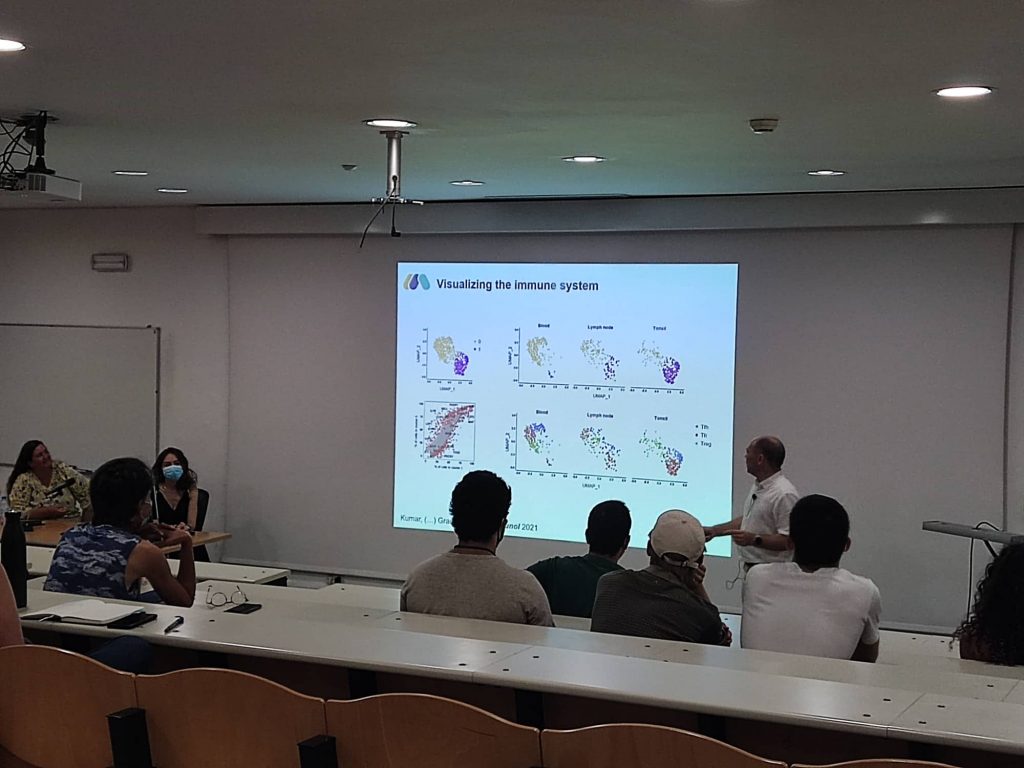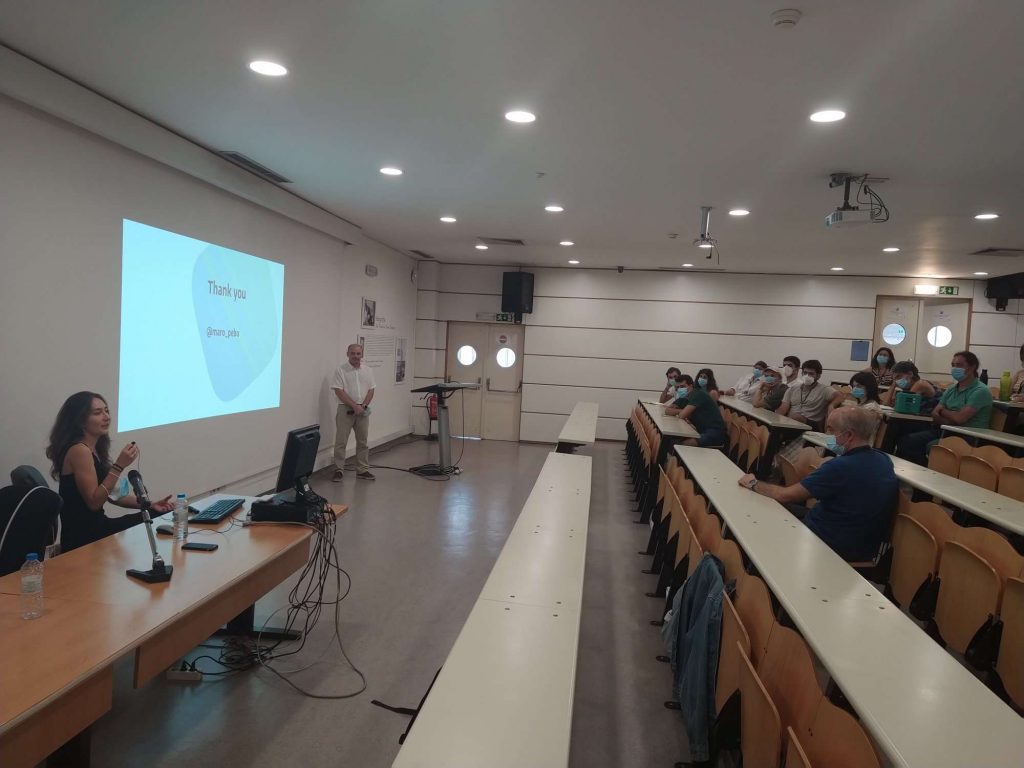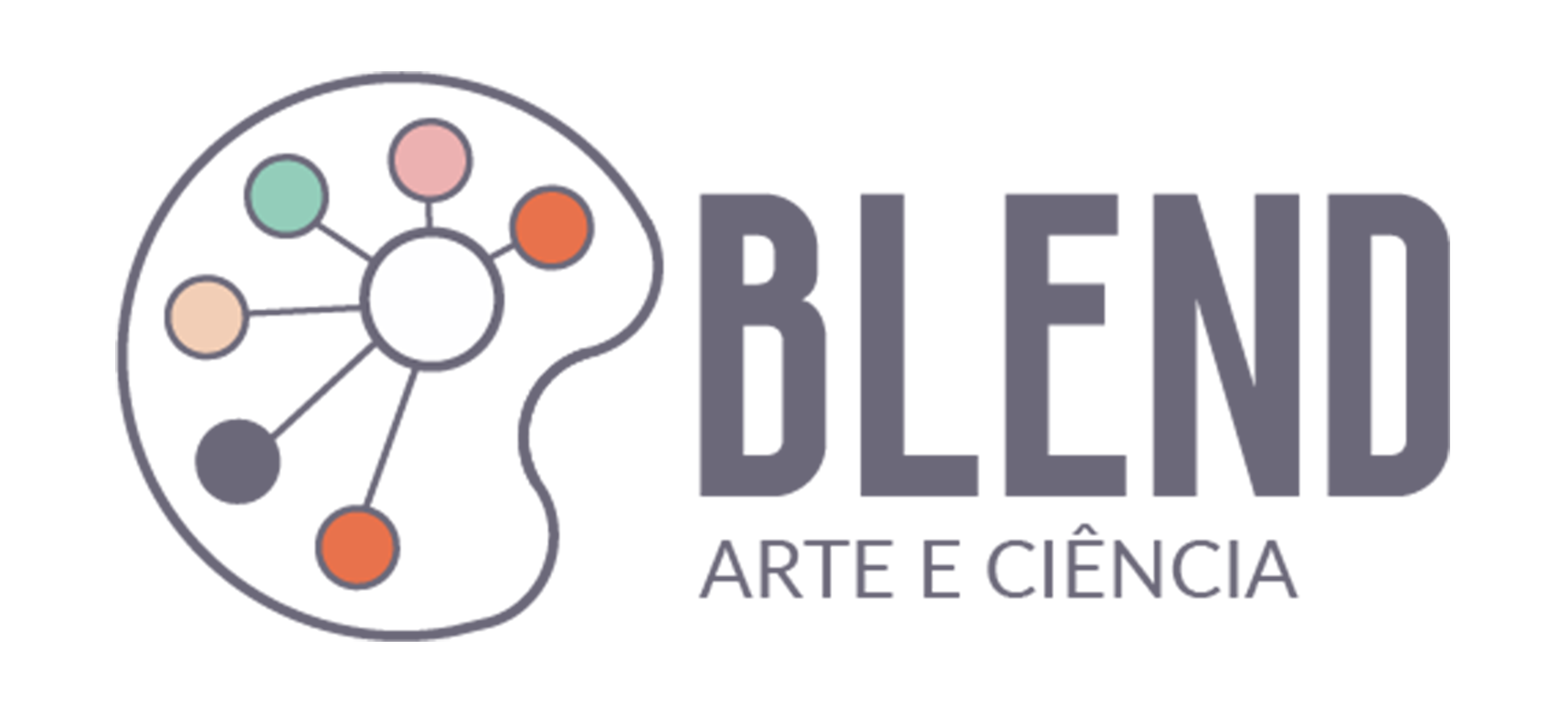Laser talks
PT//
Parte integrante do Blend será uma série de seminários regulares baseados num diálogo que inclua um cientista (idealmente da comunidade académica local), um artista e um moderador convidado. Para a seleção dos participantes tentaremos tirar partido da vinda a Portugal de artistas que trabalham em áreas na fronteira da Arte e Ciência para criar um programa de seminários atrativos e desafiantes. O horário (dia da semana e do mês, e hora de realização) deverá também ser definido em função das atividades previstas no campus da FMUL/iMM/CHULN.
ENG//
An integral part of Blend will be a series of regular dialogue-based seminars that feature a scientist (ideally from the local academic community), an artist and a guest moderator. For the selection of participants, we will try to take advantage of the coming to Portugal of artists who work in the area of Art and Science to create an attractive and engaging program of seminars. The day of the week, month, and time will also be defined and announced according to the activities planned on the FMUL/iMM/CHULN campus.
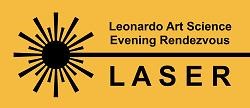
LASER TALKS 2 per year (dates to be anounced)
PT//
LASER – Leonardo Art Science Evening Rendezvous. Uma forma de trazer reconhecimento aos seminários.
A revista de arte Leonardo fundou um programa de seminários que cruzam arte e ciência designado por LASER. Este programa tem sido implementado em algumas das principais universidades do mundo e tem grande reconhecimento (Stanford, UCLA, Cambridge, ETH Zurich,…). Saiba mais aqui.
ENG//
LASER – Leonardo Art Science Evening Rendezvous.
The LASERs are an international program of gatherings that bring the humanities, arts and sciences together for informal presentations and conversation with an audience. As of 2022, they take place in more than 40 universities and cultural institutions in four continents. Click here for more information.
02/02/2024
Oron Catts
Title:
The Fantastical Stories of Lab Grown Salvation
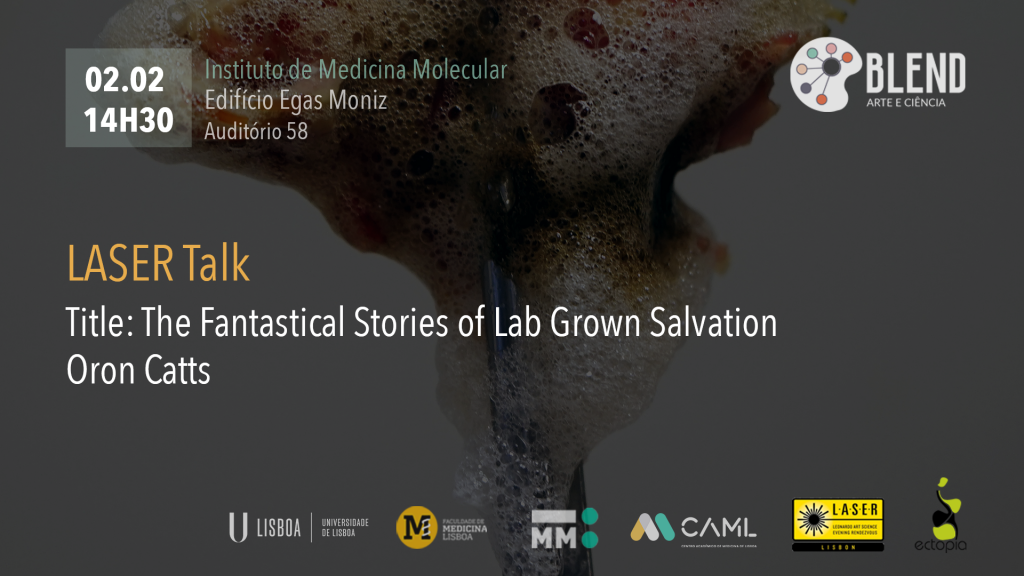
PT//
Esta palestra irá explorar a atual obsessão da abundância sem consequências no casamento de produtos cultivados em laboratório com sistemas de produção alimentar. Estas novas abordagens tecnológicas à produção (que podem ser referidas como tecnologias de fenda metabólica), são construídas com base na premissa de que podemos remover e substituir a terra (natureza/recurso natural) por tecnologias mágicas, não só para alimentar as necessidades e desejos humanos, mas também para salvar a própria natureza. Por outras palavras, as tecnologias de fendas metabólicas anulam os processos de extração e exploração naturais dos quais derivam os seus produtos de referência. Argumenta-se que o objetivo subjacente a certas inovações da fenda metabólica, através da ciência e da tecnologia, necessita de uma certa mistificação.
O desejo dos seres humanos é o de uma existência utópica em que a nossa alimentação seja abundante, não laboriosa, normalizada, optimizada, assegurada e produzida sem exploração e extração de recursos e sem as suas consequências incómodas. Queremos que os nossos alimentos e materiais sejam isentos de culpa, divorciados da experiência imediata e do risco de sofrimento. Este desejo irrealista pode ser simulado através de uma existência abstrata e livre de natureza. No entanto, é apenas uma ilusão; uma fantasia tecnofetichista que se deslocou do domínio da ficção para o discurso da inovação, do investimento e da salvação. No entanto, onde os meios de produção estão a tornar-se cada vez mais dissidentes da natureza, experimentaremos uma fenda metabólica. Um estado em que uma natureza quebrada já não é capaz de nos sustentar.
A palestra abordará também o desenvolvimento do projeto Cooking Immunology como parte da minha residência de investigação em Portugal.
EN//
This talk will explore the current obsession of abundance without consequence in the marriage of lab grown products with food production systems. These new technological approaches to production (that can be referred to as metabolic rift technologies), are built on the premise that we can remove and replace land (nature/natural resource) with magical technologies, not just to nourish human’s needs and desires but also to save nature itself. In other words, metabolic rift technologies nullify the processes of natural extraction and exploitation from which their reference products are derived. It will argue that the underlying aim of certain metabolic rift innovations, through science and technology, necessitates a measure of mystification.
Humans’ desire is for utopian existence in which our nutrition is abundant, unlaboured, standardised, optimised, assured and produced without exploitation and extraction of resources and their uneasy consequences. We want our food and materials to be guilt-free, divorced from immediate experience and the risk of suffering. This unrealistic wish can be simulated through an abstracted nature free existence. However, it is merely and illusion; a techno-fetishist fantasy which has shifted from the realm fiction to the discourse of innovation, investment and salvation. Nevertheless, where the means of production are growing ever dissident from the nature we will experience a Metabolic rift. A state when a broken nature can no longer be able to sustain us.
The talk will also cover the development of the Cooking Immunology project as part of my research residency in Portugal.
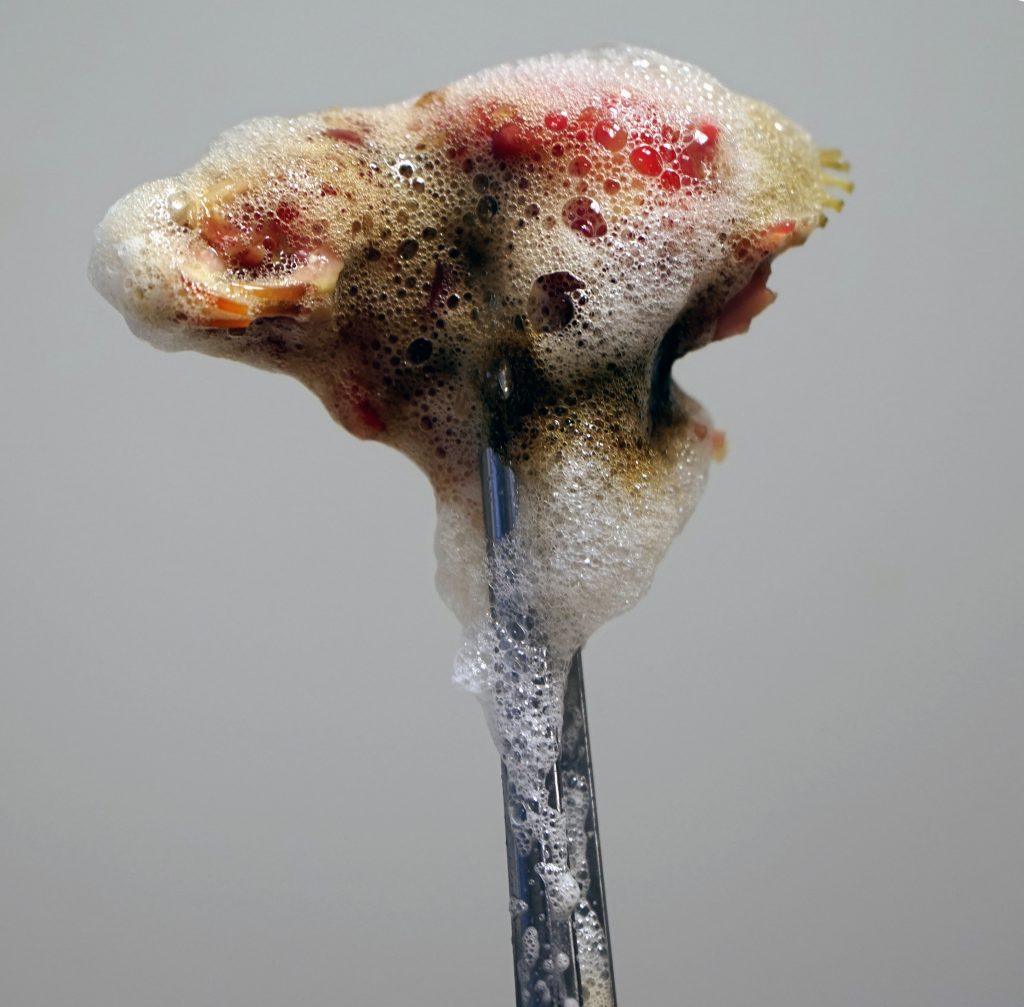
BIO
PT//
Oron Catts é um artista, investigador e curador cujo trabalho precursor com o Tissue Culture and Art Project, que estabeleceu com Ionat Zurr em 1996, é considerado um dos principais projetos de arte biológica.
É cofundador e diretor do SymbioticA (criado em 2000), um centro de investigação de arte biológica na Universidade da Austrália Ocidental. Catts foi bolseiro de investigação na Harvard Medical School, académico convidado no Departamento de Arte e História da Arte da Universidade de Stanford, e professor em Design Contestável no Royal College of Arts, em Londres. Catts foi curador de uma dúzia de exposições, publicou amplamente e expôs no Centre Pompidou, MoMA, Mori Art Museum, NGV, GoMA, Ars Electronica, National Art Museum of China e muito mais.
EN//
Oron Catts is an artist, researcher and curator whose pioneering work with the Tissue Culture and Art Project which he established with Ionat Zurr in 1996 is considered a leading biological art project.
He is co-founder and director of SymbioticA (established in 2000), a biological art research center at The University of Western Australia. Catts was a Research Fellow in Harvard Medical School, a visiting Scholar at the Department of Art and Art History Stanford University, a Professor at Large in Contestable Design at the Royal College of Arts, London. Catts curated a dozen exhibitions, published widely and exhibited in Centre Pompidou, MoMA, Mori Art Museum, NGV, GoMA, Ars Electronica, National Art Museum of China and more.
29/06/2023
Nigel Helyer
Title:
Imaginary Beings; three characters walk into the Bar LUCA…
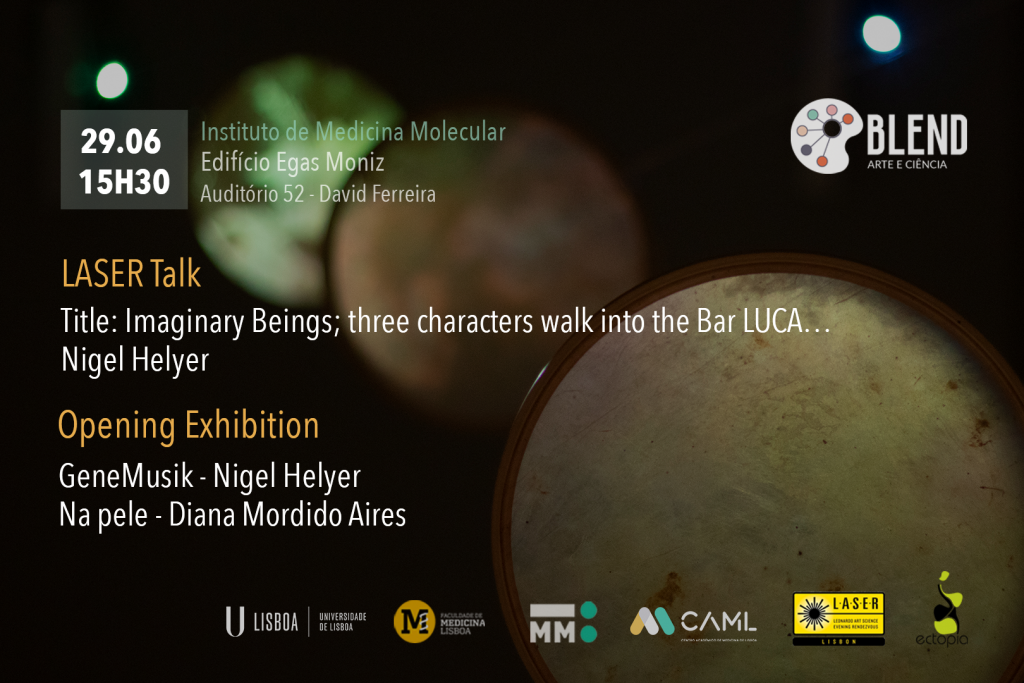
PT//
Três personagens entram num bar, um Vírus, um Humano e o Pai Natal. O empregado do bar recusa-se a servir o Humano e o Pai Natal, por considerá-los quimeras, mas serve alegremente o Vírus com três Gin tónicos, que o Vírus partilha generosamente com os seus dois colegas.
O bar está vazio e, por isso, o empregado junta-se a eles à mesa, onde se inicia uma animada discussão sob a forma de uma exposição clássica e de um discurso argumentativo destinado a testar a identidade, a integridade e a soberania de cada um dos bebedores.
EN//
Three characters walk into a bar, a Virus, a Human and Sant Claus. The bar tender refuses to serve the Human and Santa Claus on the basis that he regards them as chimera but happily serves the Virus with three Gin and Tonics, which the Virus generously shares with his two colleagues.
The bar is otherwise empty and so the bar tender joins them at a table where a lively discussion ensues in the form of a classical exposition and argumentative discourse designed to test the identity, integrity and soverenity of each drinker.
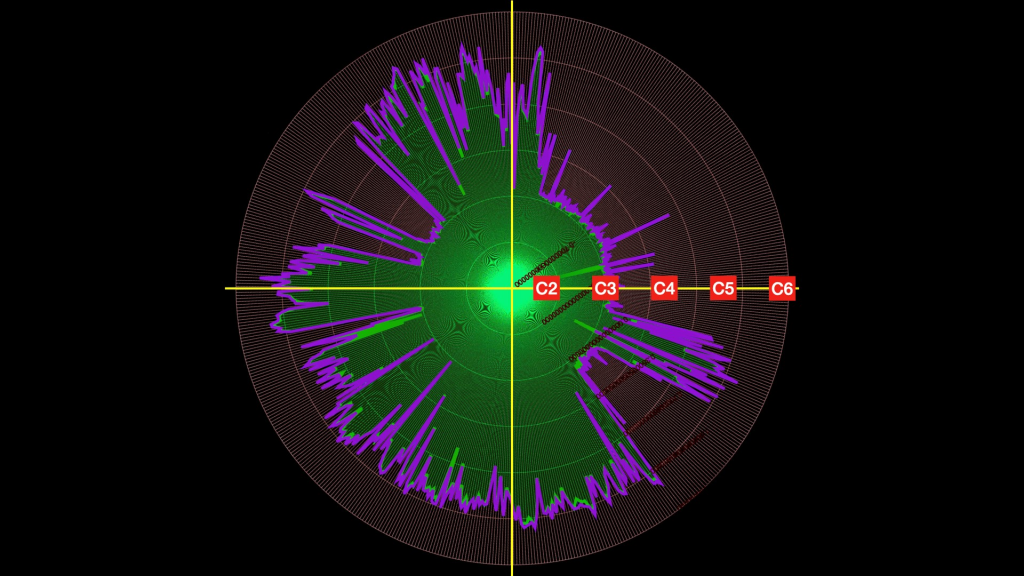
BIO
PT//
O Dr. Nigel Helyer é um escultor e artista sonoro de renome internacional, cuja prática interdisciplinar combina arte e ciência para abranger os nossos ambientes sociais, culturais e físicos. Ele reúne estas preocupações em projetos criativos que levam a comunidade a envolver-se com as suas histórias culturais, identidade e sentido de lugar; convidando-nos a examinar as condições abstratas do nosso mundo e as nossas complexas relações com ele.
Nigel é um forte defensor da arte experimental e é especialista em colaborações entre arte e ciência. É também ativo no pensamento crítico e é um colaborador prolífico em revistas, conferências e emissões. É membro da direção da Association Internationale de Critiques d’Art, sediada em Paris, e foi o editor fundador e editor da PraxisM, a revista de arte contemporânea da Austrália Ocidental. Nigel é autor de vários livros, incluindo Crayvox, The Deluge Ark(ive), Culturescape: An Ecology of Bundanon e When Science Meets Art. A sua escrita abrange ficção especulativa, incluindo a novela gráfica Sonique e o romance Freeze Frame, uma ficção sobre a relação entre o cinema e a vida após a morte – concebida para ser acompanhada por uma exposição com o mesmo nome.
EN//
Dr. Nigel Helyer; is an internationally prominent sculptor and sound artist, whose interdisciplinary practice combines art and science to embrace our social, cultural and physical environments. He brings these concerns together in creative projects that prompt the community to engage with their cultural histories, identity and sense of place; inviting us to examine the abstract conditions of our world and our complex relationships to it.
Nigel is a strong advocate for experimental art and is a specialist in Art and science collaborations. He is also active in critical thought and is a prolific contributor to journals, conferences and broadcasts. He is a board member of the Paris based Association Internationale de Critiques d’Art and was the founding editor and publisher of PraxisM the contemporary art journal of Western Australia. Nigel has authored several books, including Crayvox, The Deluge Ark(ive), Culturescape: An Ecology of Bundanon and When Science Meets Art. His writing embraces speculative fiction including the Graphic Novel Sonique and the novel Freeze Frame, a fiction about the relationship of Cinema and the Afterlife – designed to be accompanied by a forthcoming exhibition of the same name.
12/09/2022
FEMeeting: Women in Art, Science and Technology 2022
As a highly international community, the program of FEMeeting 2022 “FEMeeting: Women in Art, Science and Technology” includes 95 presentations by 109 speakers from 27 countries as well as other activities to encourage communication among its participants. Taking place from 12 to 17 September 2022, the third conference has its kick-off in Lisbon, at the Institute of Molecular Medicine, and continues its program in the city of Évora, hosted in the Convento de São Bento de Castris and the Fundação Eugénio de Almeida.
FEMeeting is driven by the desire to develop and promote a more direct collaboration at the level of artistic and research projects between all individuals who identify with the female gender. The conference aims to disseminate projects being undertaken by women worldwide and, as a result, to contribute to the development of art-science research methodologies and to the growth of cooperation strategies that can increase knowledge sharing and bring communities closer. To facilitate personal networking, most of the program is organized as closed sessions, only to the conference speakers, but the program also includes, in the first day in Lisbon and the last day in Évora, two public sessions that aim to encourage participation and attendance among all individuals interested in the topics of the conference independently of their gender.
Launched in 2017, the idea behind the conference “FEMeeting: Women in Art, Science and Technology” was orchestrated by the Portuguese artist Marta de Menezes and scholar Dalila Honorato. Alike the two first FEMeetings, FEMeeting 2022 is co-organized in Portugal by FEMeeting, Cultivamos Cultura and Direcção Regional de Cultura do Alentejo, this year with the support of Fundação Eugénio de Almeida (PT) and Intellect (UK) and in partnership with Ionian University (GR), Rensselaer Polytechnic Institute (USA), University of California Los Angeles (USA), Aalto University (FI), Universidade Nacional Autonoma do México (MX), Windsor University (CA), University of Western Australia (AU), I3S – Institute of Health Innovation and Research (PT), Science for Change (ES) and Leonardo/Olats (FR).
This time the organization of FEMeeting 2022 aims the debut of part of the conference proceedings in the peer-reviewed journal Technoetic Arts and is integrating its open event in Lisbon in the LASER series, with the support of Leonardo/ISAST and as part of the project Blend, a collaboration in the field of art, science and medicine between Faculty of Medicine of the University of Lisbon, Instituto de Medicina Molecular João Lobo Antunes and Centro Hospitalar Universitário Lisboa Norte – Hospital de Santa Maria with Ectopia Experimental Art Laboratory.
- Official website
- Full program here
- Speakers
- For more information: femeeting@cultivamoscultura.org
.
Program: September 12 | Public Session in Lisbon – Instituto de Medicina Molecular João Lobo Antunes (iMM)
13:00h
Marta de Menezes | Welcome to LASER (Leonardo Art Science Evening Rendezvous) Talks
Dalila Honorato | Welcome to FEMeeting
Maria M. Mota | Welcome to iMM
13:20h
Maria M. Mota | Women in Science
13:40h
Joana Magalhães | Opening up science
14:00h
Marta de Menezes | Women Stories at Cultivamos Cultura
14:20h
Cristin Millett and Cynthia White | Ex-Utero: The Future of Human Reproduction
14:40h
Q&A (30 minutes)
Check the abstracts here and the speakers bio here.
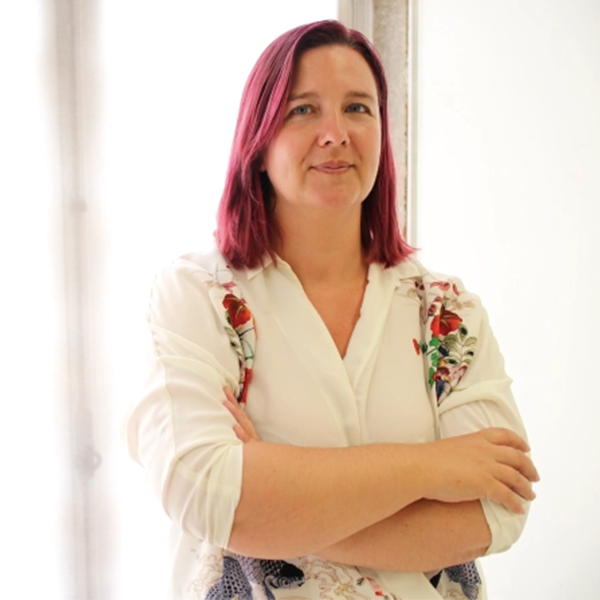
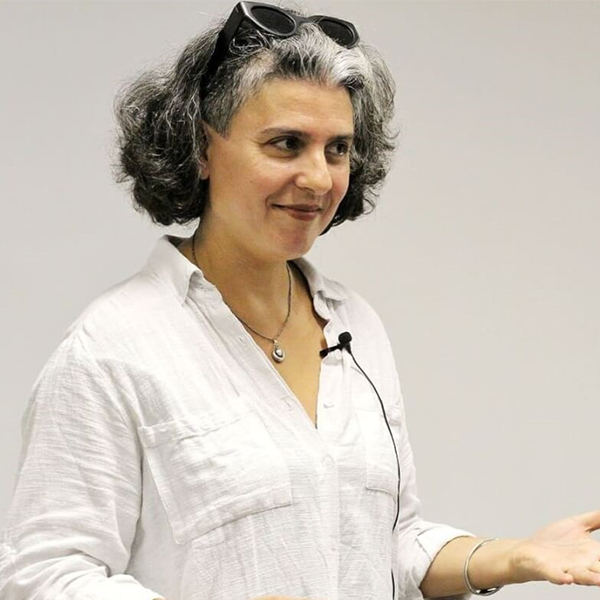
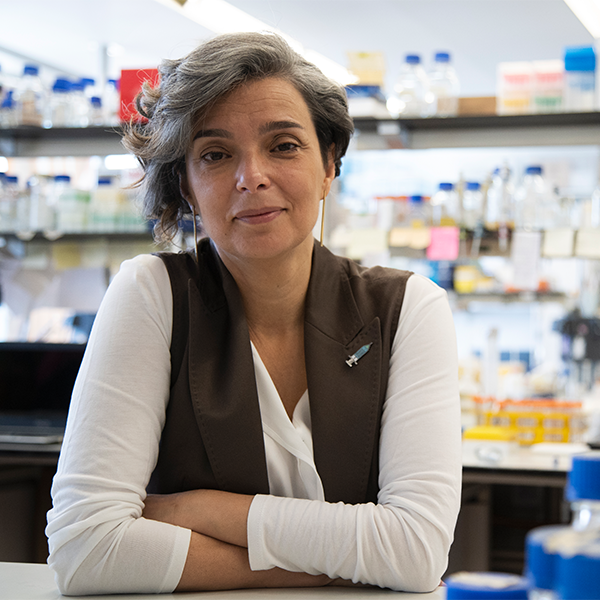
.
.
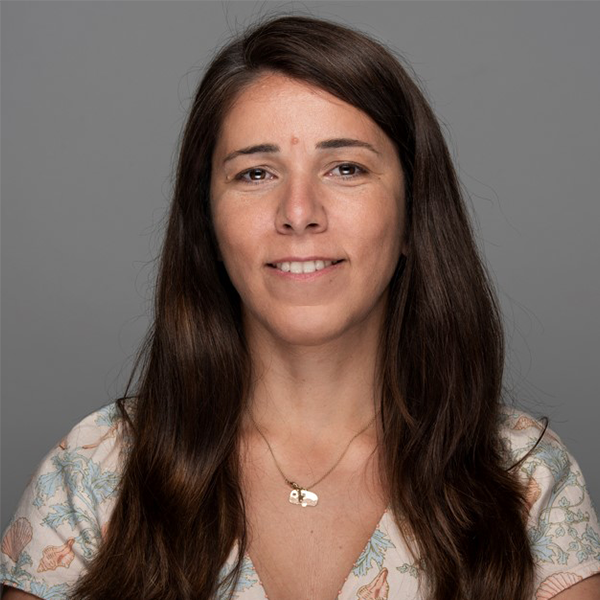
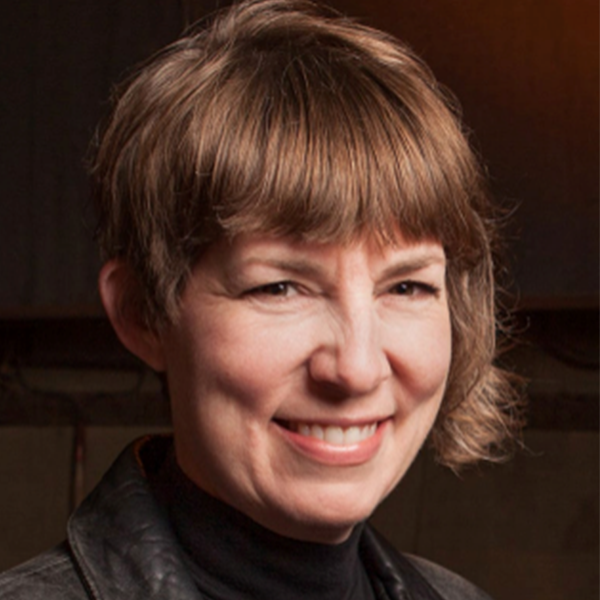
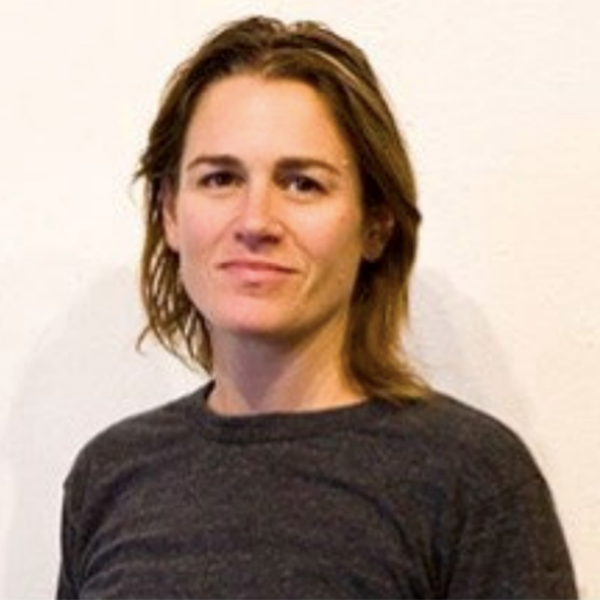
14/07/2022
Maro Pebo e Luis Graça hosted by Marta de Menezes
Title:
“Self as other” “O próprio como outro”
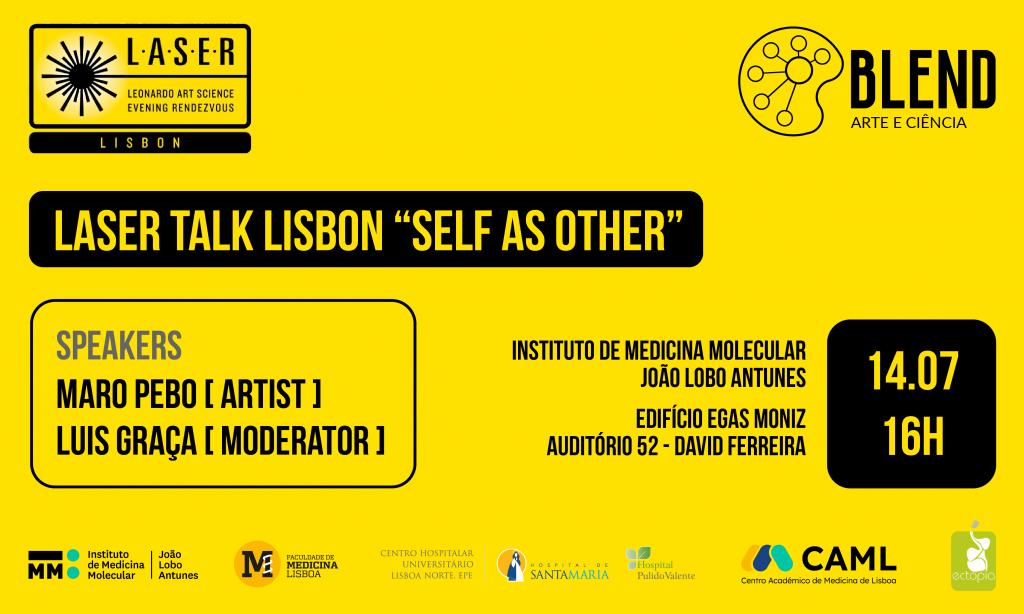
Weaving collaborations, Maro Pebo works on defying anthropocentrism and on skeptical environmental accountability. Her transdisciplinary work subverts the monopoly of the life sciences to think biological matter and aims to release the indiscipline of living cells. Ph.D. in Creative Media at the School of Creative Media at the City University of Hong Kong, her research revolved around art and biology, epistemology, history of science, new materialism, biohacking, wetware, and bacteria.
Luís Graça is currently Associate Professor at the Faculdade de Medicina da Universidade de Lisboa, directing a research group in cellular immunology at Instituto de Medicina Molecular João Lobo Antunes. His most significant scientific contributions have been related with the development of strategies to teach the immune system not to reject transplanted organs, also known as immune tolerance. Currently he is extending his findings to the fields of allergy and autoimmunity (where the immune system attacks its own body).
